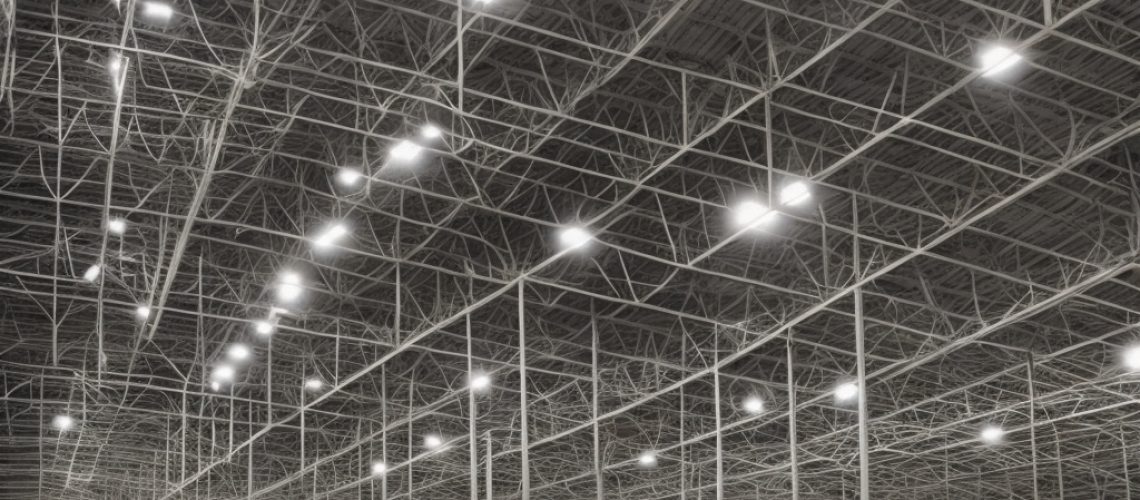Several companies have been reporting missing metals from their warehouse inventory. The missing metals include copper, aluminum, and steel, among others. These missing metals have caused significant losses to the companies, and they are looking for ways to prevent further theft.
The missing metals from warehouses are not a new phenomenon. However, the scale of the problem has increased in recent years. The high demand for metals and the increasing value of scrap metal have made them an attractive target for thieves. The theft of metals from warehouses is not only a financial loss for the companies but also a safety concern as it can cause damage to the warehouse infrastructure. Companies are now exploring various measures to prevent the theft of metals from their warehouses, including increased security measures and better inventory management systems.
Causes of Missing Metals
Human Error
One of the most common causes of missing metals in a warehouse is human error. This can happen when workers fail to properly record the movement of metals in and out of the warehouse. For example, a worker might forget to record the delivery of a shipment of metals, or they might accidentally enter the wrong information into the computer system. This can lead to confusion and make it difficult to track down missing metals.
Theft
Another cause of missing metals in a warehouse is theft. Unfortunately, theft is a common problem in many warehouses, and metals are often a prime target for thieves. Thieves might steal metals by breaking into the warehouse and taking them directly, or they might steal them by posing as legitimate customers or suppliers. In some cases, employees might also be involved in theft, either by stealing metals themselves or by helping others to steal them.
To prevent theft, warehouses can take a number of steps. For example, they can install security cameras and alarms, require identification for all visitors, and limit access to certain areas of the warehouse. They can also conduct regular audits to ensure that all metals are accounted for and investigate any discrepancies.
Overall, understanding the causes of missing metals is an important step in preventing them from happening. By taking steps to address human error and theft, warehouses can help ensure that their metals are safe and secure.
Impact of Missing Metals
Financial Loss
Missing metals in a warehouse can have a significant financial impact on a company. The cost of the metals themselves can be substantial, but the cost of replacing them can be even higher. In addition to the direct costs of replacement, there may be indirect costs associated with the loss of these metals, such as lost productivity, delayed shipments, and increased insurance premiums.
The financial impact can be even greater if the missing metals are critical to the production process. In this case, the company may be forced to shut down production until the missing metals are replaced, resulting in lost revenue and increased costs.
Operational Delays
Missing metals can also cause operational delays. If the missing metals are needed for production, the delay can result in missed deadlines and lost business. The delay can also cause a backlog in the production process, which can lead to further delays and increased costs.
In addition to the direct impact on production, missing metals can also cause delays in shipping and receiving. If the metals are needed to fulfill an order, the delay can result in late shipments and dissatisfied customers. This can damage the company’s reputation and lead to lost business in the future.
In conclusion, missing metals in a warehouse can have a significant impact on a company’s finances and operations. It is important for companies to have robust inventory management systems in place to prevent losses and mitigate the impact of any missing metals.
Preventive Measures
Improved Security Measures
To prevent the loss of metals from the warehouse, it is essential to implement improved security measures. This includes installing surveillance cameras at strategic locations within the warehouse premises. The cameras should cover all areas where metals are stored, and they should be monitored regularly to ensure that any suspicious activity is detected and dealt with promptly.
Access to the warehouse should be restricted to authorized personnel only. This can be achieved by issuing security badges or access codes to employees who require access to the warehouse. The warehouse should also have a secure perimeter fence, and all entry and exit points should be monitored.
Regular Auditing
Regular auditing is another effective measure that can be adopted to prevent the loss of metals from the warehouse. Auditing involves verifying the inventory of metals in the warehouse against the records maintained by the company. This can be done manually or using automated systems.
Auditing should be conducted at regular intervals, and any discrepancies should be investigated immediately. The audit reports should be reviewed by the management, and appropriate action should be taken to address any issues identified during the audit.
By implementing improved security measures and conducting regular audits, companies can prevent the loss of metals from their warehouses. These measures not only help to protect the company’s assets but also ensure that the customers’ needs are met promptly and efficiently.

